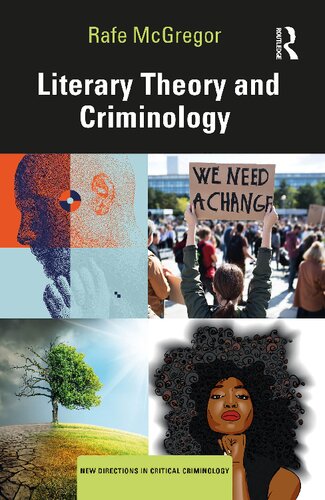

Most ebook files are in PDF format, so you can easily read them using various software such as Foxit Reader or directly on the Google Chrome browser.
Some ebook files are released by publishers in other formats such as .awz, .mobi, .epub, .fb2, etc. You may need to install specific software to read these formats on mobile/PC, such as Calibre.
Please read the tutorial at this link: https://ebookbell.com/faq
We offer FREE conversion to the popular formats you request; however, this may take some time. Therefore, right after payment, please email us, and we will try to provide the service as quickly as possible.
For some exceptional file formats or broken links (if any), please refrain from opening any disputes. Instead, email us first, and we will try to assist within a maximum of 6 hours.
EbookBell Team

4.8
94 reviewsLiterary Theory and Criminology demonstrates the significance of contemporary literary theory to the discipline of criminology, particularly to those criminologists who are primarily concerned with questions of power, inequality, and harm. Drawing on innovations in philosophical, narrative, cultural, and pulp criminology, it sets out a deconstructive framework as part of a critical criminological critique-praxis.
This book comprises eight essays – on globalisation, criminological fiction, poststructuralism, patriarchal political economy, racial capitalism, anthropocidal ecocide, critical theory, and critical praxis – that argue for the value of contemporary literary theory to a critical criminology concerned with the construction of a just and sustainable reality in the face of climate change and other mass harms. This is the first criminology book to engage with literary theory from the perspective of criminology and provides a guide for criminologists who want to deploy literary theory as part of their research programmes. It supersedes existing engagements with poststructuralism in the philosophical criminological tradition because it entails neither a constructionist ontology nor a relativist epistemology. It shows criminologists how literary theory offers the tools to first deconstruct and then reconstruct meaning and value.
Literary Theory and Criminology
is essential reading for all critical criminological theorists.